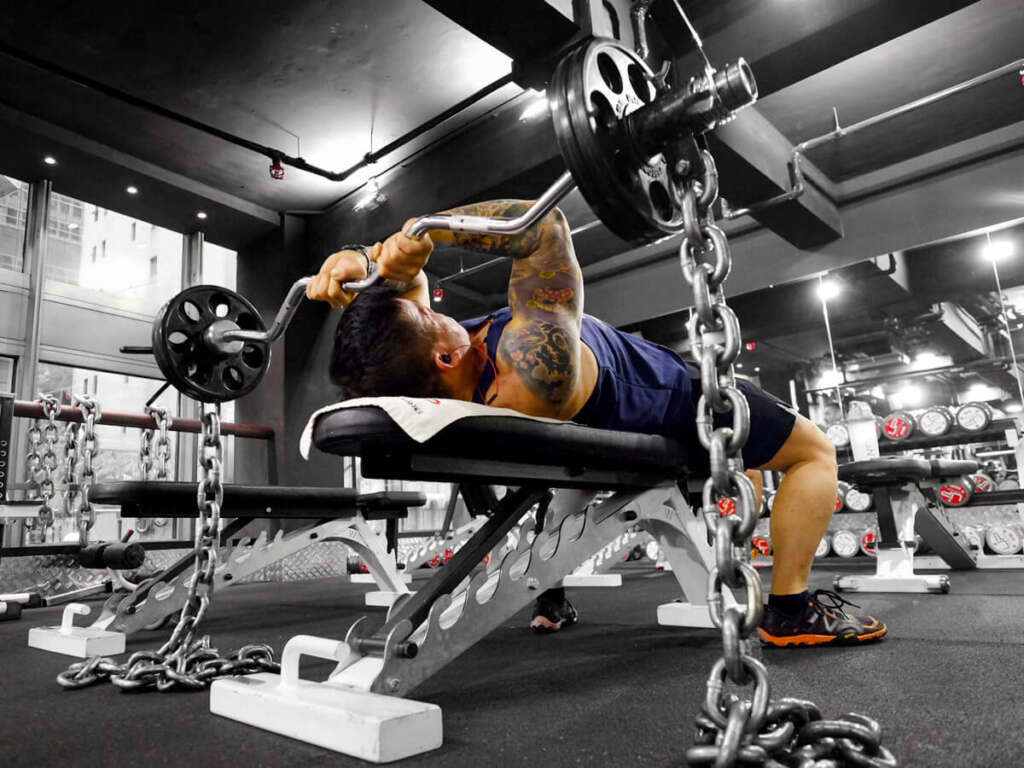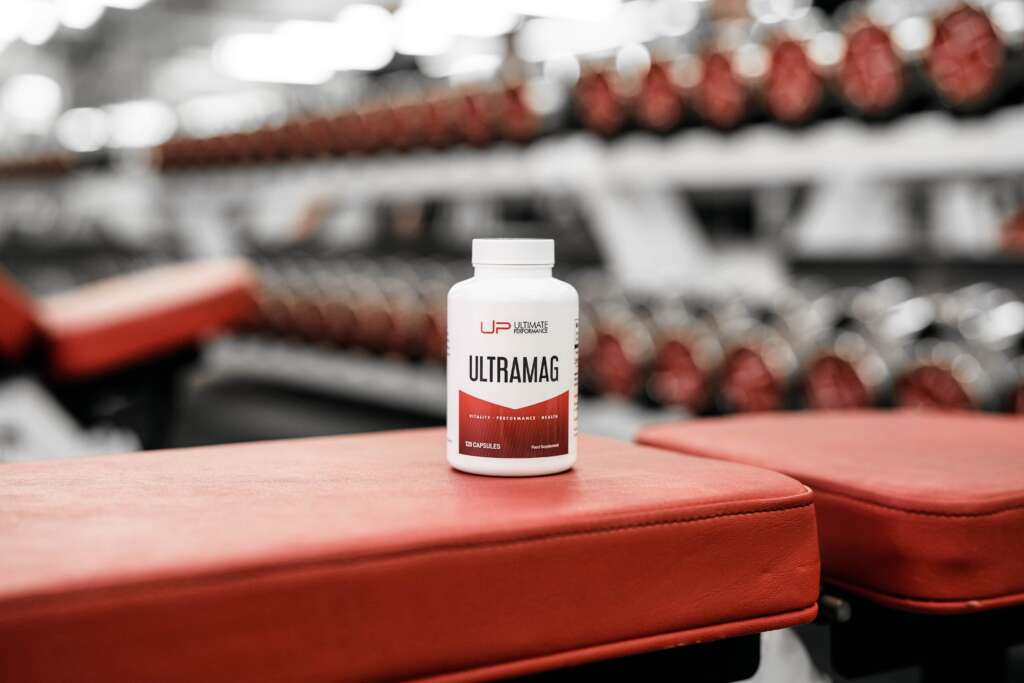What’s the missing ingredient to your next promotion, getting the girl, securing that next big client, or setting new records in the gym?
Here’s a clue… it’s not the latest diet, training split or celebrity-endorsed fitness plan. If you want to truly optimise all areas of your life, the secret lies in maximising what nature gave you: testosterone.
The great news is that with a few tweaks, you, too, look great, excel professionally, and take your relationships to the next level. Here’s your quick-start man’s guide to rebooting your health and living to your true potential.
It’s tough being a man in the 21st century
You’ve got to look like an Adonis with a full head of hair, successfully navigate the ups and downs of family, friendships and relationships, and push ever harder for that next step up at work.
And this pressure to be the ‘perfect man’ can have toxic effects, leading to increased stress, anxiety, depression and, in some severe cases, eating disorders[1]. But the problems don’t end there…
Are you a lonely single man?
Statistics show that many men struggle with emotional intelligence, leading to the rise of the ‘lonely, single man’. As many as 62% of dating app users are men.
One of the potential causes is a communication ‘skills gap’ that leaves many men feeling unable to express their emotions effectively. The result is an increasingly shrinking dating and a higher risk of poor mental health.
But regardless of whether you’re happily (or unhappily) in a relationship, this affects far more than just your romantic prospects.
Emotional intelligence is a key benchmark of success in both the boardroom and the bedroom. Research shows time and again that EQ accounts for almost 90% of what makes the highest performers stand out. This applies even when technical skills and knowledge are matched[2].
So how can you make sure you lead the pack? It all comes down to a hormone called testosterone.

Testosterone is a man’s best friend
When you think about testosterone, the first thing that probably comes to mind is aggression. And while this is true in some situations, testosterone is one of the most powerful tools you can harness to take your performance to the next level in all areas of your life. And it’s all down to its relationship with dopamine.
Testosterone and dopamine: a two-way street
Dopamine is a neurotransmitter – or chemical messenger – that influences drive and motivation[3]. While the precise mechanisms remain unclear, dopamine and testosterone have a two-way relationship; dopamine can increase testosterone levels and vice versa[4].
Both testosterone and dopamine also have important interactions with the hypothalamus, the area of the brain that controls body temperature, hunger and thirst, mood, sex drive, blood pressure and sleep[5]. But the similarities don’t end there.
You may think of dopamine as being related to reward or pleasure. However, dopamine’s main function is linked to the anticipation of a reward and the tasks we need to do to achieve it. So, it doesn’t push you to win a race or get that new job – it drives you to perform the behaviours that lead to that result, like training harder in the gym or working on your presentation skills.
On the other hand, testosterone increases energy, alertness, and motivation, giving you that ‘get up and go’. Testosterone also increases glucose uptake into your muscles, helping you feel more awake and alert so you can reach for that next stretch goal [6]. Combined, testosterone and dopamine create a powerful partnership that can unlock the key to success in multiple areas of your life. But there’s only one problem with that…

Men’s testosterone levels are at an all-time low
Over the past 40 years, sperm counts worldwide have halved. So much so that it is estimated that around 1 in 20 men has reduced fertility[7]. Rising rates of obesity, environmental toxins and unhealthy lifestyles mean that between 10-40% of adult men have low testosterone[8]. And this can have devastating effects on your physical and mental health.
Low testosterone levels are linked to everything from increased risk of lifestyle diseases like type 2 diabetes to depression, reduced muscle mass, increased irritability and fatigue[9],[10],[11],[12]. Stats also show that men with low testosterone face nearly double the risk of death from all causes compared to men with normal levels[13]. And low T-levels are also bad news for your professional and romantic life.
Poor memory and cognition, underperforming at work, low focus… low testosterone could be holding you back from reaching those new heights at work, in your personal life or in the gym[14]. Fortunately, your hormonal health is very much within your control.

Harnessing testosterone and dopamine for optimum performance
Creating the right balance of testosterone and dopamine is critical for ensuring your success, whether your goal is climbing Mount Everest, making the top sales in the company, or asking out your next date. Early research shows that increasing testosterone levels in men may increase competitiveness[15]. Just the thing you need to give you that cutting edge. But that’s not all.
Evidence also shows that administering testosterone to men increases dopamine levels in the body[16]. The result? Increased motivation, decreased perceived effort and an increased sense of reward[17]. That goal that seemed like a mountain before suddenly just became a molehill.
With all this in mind, it begs the question… isn’t as much testosterone as possible the answer? Well, this is where it gets complicated.

Is more testosterone always better?
Not quite. Remember the importance of emotional intelligence for maximising your personal and professional potential? The problem is that testosterone is great at giving you that drive to leave your competitors eating your dust… unfortunately, this doesn’t make for a great team player.
Research in children shows that those with the highest testosterone levels, you guessed it… also have the lowest EQ scores. On the other hand, kids with the lowest testosterone levels score better in dealing with emotional conflict[18]. And we need to turn to women to understand why.
In one pilot study, female participants took a ‘reading the mind in eyes test’ (RMET), where they were asked to identify the emotion of people in photos. All they could see were their eyes. After taking just a single dose of testosterone, the women all fared worse on the test than they did before the hormone dose[19].
So, does this mean that men are doomed to dead-end relationships? Far from it.
You have more power than you think
Studies show that your testosterone levels are highly dependent on your behaviour[20]. For example, men’s testosterone levels have been shown to increase during the aggressive phases of sports games. Hardly surprising. But what is interesting is that when a man adopts a more settled, social lifestyle, such as getting married, having children or taking on a stable job, his testosterone levels decrease[iv].
The takeaway is that you have the ability to control your testosterone levels just by your behaviour, based on when it’s most likely to be beneficial to you.
If you’re aiming to hit two plates each side on your bench press, that’s a great time to tap into some raw aggression and spike those T-levels. If you’re on a date or sitting around the negotiating table, it may be time to back down from social sparring and tap into some empathy.
So, how can you leverage the power of testosterone to become your highest-performing self? Luckily, that’s the easy part.

Boost your testosterone levels the natural way
Forget the latest ‘test-booster’ supp (or more drastic options), your lifestyle is by far and away the most effective way to keep your hormone levels in top condition.
1. Lose weight = more dates
You don’t have to look like a fitness model year-round, but ditching the ‘dad bod’ will do wonders for your confidence and your hormonal health.
Research indicates that improving body composition through fat loss creates big gains in the testosterone department[22],[23]. One study monitored T levels in male participants and found that the prevalence of low testosterone halved after losing 10% and more of their total body weight through diet and exercise[24].

2. Put a lid on stress
Stats show that men and women both experience stress at similar levels. The difference is that women are generally better at recognising and taking steps to address it[25].
Yet this can have devastating effects on your hormonal function. Men with low testosterone are statistically more likely to lead highly stressful lives, and studies even show that the mere anticipation of stress can decrease testosterone production[26]. Stress can also indirectly impact testosterone by triggering unhealthy coping mechanisms, such as drinking, binge eating, and drug abuse.
You might not always be able to control outside factors, but you can manage your response to them. Making time to manage stress positively, whether that’s meditating, journaling, opening up to a friend (or investing in a therapist), is a no-brainer when it comes to excelling in all areas of your life.

3. Train hard to work smarter
There’s a reason lifting weights is so good for you, and it’s not just the rush you get from achieving a great pump.
Research shows that men who remain physically active through life have higher testosterone levels[27]. Of all forms of exercise, resistance training seems to be the most beneficial for boosting testosterone[28]. But that’s not the only bonus.
Weight training improves your ability to deal with day-to-day life by enhancing the body’s adaptive stress response[29]. So those minor irritations that normally pull you off track? Now they’re small fry.
If you’re not already following a structured resistance training program, there’s even more reason to get started.
4. Rest harder
Remember the old adage that you grow outside of the gym not in it? Effective recovery is essential if you want to perform at your best both physically and cognitively. And sleep is probably the most powerful tool for keeping your emotional and physical health in check.
On average, men who sleep less have lower testosterone, with as little as one week of short sleep being sufficient to reduce your testosterone by 15%,[30]. Most adults need somewhere between seven to nine hours of sleep per night, so if you’re not achieving this, focus on improving your sleep hygiene.

5. Invest in your personal development
The best way to learn how to dial up and down the power of testosterone is through reflecting and working on your emotional intelligence. There may be times when a more aggressive approach is exactly what you need to drive through that next big deal. At other times, taking a step back and toning down the T-levels is more constructive.
Studies show that emotional intelligence is a key factor in leadership development[31]. Whether it’s reading a book, taking a course or working with a mentor, it’s one of the safest investments you can make in your future self.
6. Fuel your performance with smart diet and supplementation
If you want to look, feel and perform at your best, your diet is one of the single most effective ways to gain the upper hand. Aim to eat mostly unprocessed foods packed with antioxidants, vitamins, minerals and healthy fats – think of a modified Mediterranean diet with plenty of lean proteins, oily fish, veggies and high-fibre carb sources.
And if you really want to give yourself a water-tight insurance policy, supplementing is key to filling any gaps. Zinc, a common nutrient deficiency, has proven links to male hormonal balance, with research showing that restricting zinc intake lowers testosterone[32].
Likewise, magnesium plays a role in testosterone levels and availability in the body[33]. Supplementing with UltraMag and Zinc NT is an almost instantaneous win.

The take-home
Being a modern man certainly has its challenges. While it may sometimes feel impossible to ‘do it all’, you can harness the natural power of testosterone to give yourself the best chance of success.
If you’re looking for structured support and accountability, speak to the experts today to learn how we can help you become your strongest, highest performing self.
References
[1] My Health London (2016). The Pressure to Be The ‘Perfect Man’. https://myhealth.london.nhs.uk/mental-health/the-perfect-man [Accessed 18.10.2022].
[2] Matos, G., (2022). The Rise of Lonely, Single Men. https://www.psychologytoday.com/us/blog/the-state-our-unions/202208/the-rise-lonely-single-men [Accessed 17.10.2022].
[3] Goleman, D., (2004). What Makes a Leader? https://hbr.org/2004/01/what-makes-a-leader [Accessed 17.10.2022].
[4] Wise, R. A. (2004). Dopamine, learning and motivation. Nature Reviews Neuroscience, 5 (6), pp. 483-494.
[5] Bridges, N. (2016). Making the Connection in Male Libido: Dopamine & Testosterone. https://sanescohealth.com/blog/male-libido-dopamine-testosterone/ [Accessed 19.10.2022].
[6] Pop, M. G., Crivii, C., & Opincariu, I. (2018). ‘Anatomy and function of the hypothalamus’. In Hypothalamus in health and diseases. IntechOpen.
[7] Ronay, R., & Von Hippel, W. (2010). Power, testosterone, and risk‐taking. Journal of Behavioral Decision Making, 23(5), pp.473-482.
[8] Levine, H., et al. (2017). Temporal trends in sperm count: a systematic review and meta-regression analysis. Human Reproduction Update, 23 (6), pp. 646-659.
[9] Kahl, K.L., (2020). Testosterone levels show steady decrease among young US men. Urology Times Journal, 48 97).
[10] Grossmann, M., et al. (2008). Low testosterone levels are common and associated with insulin resistance in men with diabetes. The Journal of Clinical Endocrinology & Metabolism, 93 (5), pp. 1834-1840.
[11] Amiaz, R., & Seidman, S. N. (2008). Testosterone and depression in men. Current Opinion in Endocrinology, Diabetes and Obesity, 15 (3), pp. 278-283.
[12] Shin, M. J., Jeon, Y. K., & Kim, I. J. (2018). Testosterone and sarcopenia. The World Journal of Men’s Health, 36 (3), pp. 192-198.
[13] Johnson, J. M., Nachtigall, L. B., & Stern, T. A. (2013). The effect of testosterone levels on mood in men: a review. Psychosomatics, 54 (6), pp. 509-514.
[14] Shores, M. M., Matsumoto, A. M., Sloan, K. L., & Kivlahan, D. R. (2006). Low serum testosterone and mortality in male veterans. Archives Of Internal Medicine, 166 (15), pp. 1660-1665.
[15] Beauchet, O. (2006). Testosterone and cognitive function: current clinical evidence of a relationship. European Journal of Endocrinology, 155 (6), pp. 773-781.
[16] Vermeer, A. L., et al. (2020). Exogenous testosterone increases status-seeking motivation in men with unstable low social status. Psychoneuroendocrinology, 113, 104552.
[17] de Souza Silva, M. A., et al. (2009). Dopaminergic and serotonergic activity in neostriatum and nucleus accumbens enhanced by intranasal administration of testosterone. European Neuropsychopharmacology, 19(1), pp. 53-63.
[18] Croxson, P. L., et al. (2009). Effort-based cost–benefit valuation and the human brain. Journal of Neuroscience, 29(14), pp. 4531-4541.
[19] Brod, G., Werkle-Bergner, M., & Shing, Y. L. (2013). The influence of prior knowledge on memory: a developmental cognitive neuroscience perspective. Frontiers In Behavioral Neuroscience, 7, 139.
[20] Bos, P. A., et al. (2016). Testosterone reduces functional connectivity during the ‘Reading the Mind in the Eyes’ Test. Psychoneuroendocrinology, 68, pp. 194-201.
[21] Batrinos, M. L. (2012). Testosterone and aggressive behavior in man. International Journal of Endocrinology and Metabolism, 10 (3), pg. 563.
[22] Batrinos, M. L. (2012). Testosterone and aggressive behavior in man.
[23] WHO. (2021). Obesity and overweight. https://www.who.int/news-room/fact-sheets. [Accessed 19.10.2022].
[24] Travison, T. G., Araujo, A. B., O’Donnell, A. B., Kupelian, V., & McKinlay, J. B. (2007). A population-level decline in serum testosterone levels in American men. The Journal of Clinical Endocrinology & Metabolism, 92(1), pp. 196-202.
[25] Rabasseda, X. (2012). A report from the endocrine society’s 94th annual meeting & expo (June 23-26-Houston, Texas, USA). Drugs of Today, 48 (9), pp. 615-625.
[26] Boettcher, N., et al. (2019). Men’s work-related stress and mental health: illustrating the workings of masculine role norms. American Journal of Men’s Health, 13 (2), 1557988319838416.
[27] Schulz, P., et al. (1996). Lower sex hormones in men during anticipatory stress, Neuroreport. 7 (18).
[28] Vaamonde, D., et al. (2012). Physically active men show better semen parameters and hormone values than sedentary men, European Journal of Applied Physiology, 112 (9), pp. 3267-3273.
[29] Vingren, J.L., Kraemer, W.J., Ratamess et al. (2010). Testosterone physiology in resistance exercise and training: the up-stream regulatory elements. Sports Medicine. 40 (12), pp. 1037-53.
[30] Gröpel, P., Urner, M., Pruessner, J. C., & Quirin, M. (2018). Endurance-and resistance-trained men exhibit lower cardiovascular responses to psychosocial stress than untrained men. Frontiers In Psychology, 9, pg. 852.
[31] Leproult, R., (2011). Effect of 1 week of sleep restriction on testosterone levels in young healthy men, JAMA, 305 (21).
[32] Sadri, G. (2012). Emotional intelligence and leadership development. Public Personnel Management, 41 (3), pp. 535-548.
[33] Prasad, A. S., et al. (1996). Zinc status and serum testosterone levels of healthy adults. Nutrition, 12 (5), pp. 344-348.
[34] Maggio, M., et al. (2014). The Interplay between Magnesium and Testosterone in Modulating Physical Function in Men, International Journal of Endocrinology, Special Issue 2014.



